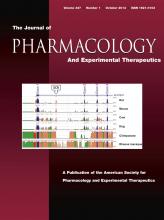Abstract
Alveolar macrophages produce neutrophil chemoattractants; this cellular cross-talk contributes to neutrophilic airway inflammation in chronic obstructive pulmonary disease (COPD). We have investigated the chemotaxis cross-talk mechanisms between these cells using COPD alveolar macrophages. Using conditioned media from stimulated COPD alveolar macrophages, we investigated the relative contributions of growth-related oncogene (CXCL1), interleukin-8 (CXCL8), and regulated on activation normal T cell expressed and secreted (CCL5) to neutrophil chemotaxis and evaluated the effect of blocking the chemokine receptors CXCR1 and CXCR2 on chemotaxis caused by macrophage-conditioned media. Furthermore, we evaluated whether corticosteroid treatment of stimulated alveolar macrophages inhibited the chemotaxis ability of conditioned media. Alveolar macrophages isolated from COPD (n = 8) and smoker (S) (n = 8) lungs were treated with ultra-pure lipopolysaccharide in the presence and absence of dexamethasone (1 μM). Supernatants were used for neutrophil chemotaxis assays. SB656933 (2-hydroxy-N,N-dimethyl-3-{2-[[(R)-1-(5-methyl-furan-2-yl)-propyl]amino]-3,4-dioxo-cyclobut-1-enylamino}-benzamide) (CXCR2 antagonist) and Sch527123 [1-(2-chloro-3-fluorophenyl)-3-(4-chloro-2-hydroxy-3-piperazin-1-ylsulfonylphenyl)urea, 3-(2-chloro-3-fluoro-phenyl)-1-(4-chloro-2-hydroxy-3-piperazin-1-ylsulfonyl-phenyl)urea] (dual CXCR1 and CXCR2 antagonist) and blocking antibodies for CXCL8, CXCL1, and CCL5 were assessed. Conditioned media caused neutrophil chemotaxis in COPD and smokers (60.5 and 79.9% of total cells, respectively). Dexamethasone did not significantly reduce neutrophil chemotaxis in COPD or S. SB656933 and Sch527123 inhibited chemotaxis in a concentration-dependent manner, with the dual antagonist Sch527123 causing greater inhibition of chemotaxis. CXCL8 antibody inhibited neutrophil chemotaxis to basal levels, although there was no significant effect of blocking either CXCL1 or CCL5 (P > 0.05). CXCL8 plays a major role in neutrophil chemotaxis caused by alveolar macrophage–derived conditioned media, and this is most effectively inhibited by dual antagonism of CXCR1 and CXCR2. Corticosteroids do not inhibit chemotaxis caused by macrophage-derived chemokines.
Footnotes
- Received November 13, 2012.
- Accepted July 30, 2013.
This work was supported by the North West Lung Research Centre.
↵
 This article has supplemental material available at jpet.aspetjournals.org.
This article has supplemental material available at jpet.aspetjournals.org.
- Copyright © 2013 by The American Society for Pharmacology and Experimental Therapeutics
JPET articles become freely available 12 months after publication, and remain freely available for 5 years.Non-open access articles that fall outside this five year window are available only to institutional subscribers and current ASPET members, or through the article purchase feature at the bottom of the page.
|







